The Dictatorship
Missouri becomes the latest state to try to quiet its citizens’ voices

In 2025, state legislators have introduced 148 bills designed to curb direct democracy. At the same time that Congress and the Supreme Court are abdicating their powers to the president, voters’ ability to pass laws via ballot measures is being stripped out from under our noses in state capitols across the country.
Citizen-led ballot measures are voters’ most powerful tool for making change when politicians fail them. As our representative democracy becomes increasingly dysfunctional, ballot measures are more important than ever — and it’s no surprise that politicians intent on consolidating power find direct democracy threatening. But if we shine a light on this power grab and hold our politicians to account, we can still preserve democracy in its purest form.
Citizen-led ballot measures are voters’ most powerful tool for making change when politicians fail them.
The Fairness Project, which released a report Tuesday on the way direct democracy is being attacked, is on the front lines of this fight. As the national leader in ballot measures, we have helped win 40 campaigns across 20 states to protect reproductive rights, raise wages, expand health care access, secure paid leave and enact other life-changing policies for more than 23 million people.
We see firsthand that voters regularly check their party affiliation at the door to vote for ballot measures that will improve their lives. We also have learned that the more citizens use their power to advance their interests, the more some lawmakers attack the process.
The 148 bills my organization counted have been filed across 15 states, and each of them, in one way or another, was drafted to break the mechanisms by which voters initiate ballot measures. The 148 bills represent a 95% increase in anti-democratic legislation by state lawmakers since 2023. Put simply, politicians’ attempts to weaken direct democracy have nearly doubled. This assault on ballot measures has no precedent. From 2000 to 2023, there was an average of 16 such bills a year. An increase to 148 isn’t a trickle. It’s a deluge.

These attempts to subvert direct democracy in the states come in several forms, but each of them aims to make it harder for people who aren’t politicians to qualify their issue for the ballot or for citizen-initiated measures to win on Election Day.
The most straightforward attacks are undemocratic supermajority requirements that impose a 60% threshold for a ballot measure to succeed, which essentially empowers a minority of voters to defeat the will of the majority. Florida already has this requirement in place, which is why Florida’s 2024 measure to overturn the state’s abortion ban failed despite being supported by 57% of voters. Now, the Missouri Legislature, at the same time it has convened a special session to gerrymander the state mid-decade, has passed a bill limiting voters’ power to amend their state constitution by ballot measure.
More insidious are the changes to the rules about how ballot measures qualify for a vote. These include requiring more signatures on petitions or requiring that they be collected from more counties in a state and imposing severe limitations on who can collect them. Some states are trying to drown advocates in red tape, requiring every petition to be notarized, every volunteer to pass a background check, every form regulated down to font size — and any mistake subject to hefty fines or criminal penalties. Taken together, these seemingly small changes add prohibitive costs to grassroots campaigns and chill citizen participation.
These seemingly small changes add prohibitive costs to grassroots campaigns and chill citizen participation.
None of these bills are “reforms.” Rather, each represents a cowardly attempt to make it harder for voters to access direct democracy. This intent to exclude citizens from lawmaking is evident in the increasingly open disdain many conservative lawmakers are showing for their own voters. When asked about his vote to repeal the paid sick leave voters had approved, one Missouri lawmaker smugly replied: “Of course the people voted for it. It would be like asking your teenager if he wanted a checkbook. They’re going to vote for it every time.”
The timing of this acceleration in anti-voter legislation is no mystery. It’s a direct response to recent cross-partisan victories in conservative states on progressive issues that voters care about — living wages, reproductive freedom, access to health care — all things that conflict with some legislators’ unpopular agendas.
The lawmakers attempting to undermine citizen-initiated ballot measures are counting on this issue being too esoteric, too weedy, too dull to catch voters’ attention. We must prove them wrong and bring every ounce of our political energy to protecting these voting rights before they’re gone.
This means shining a light on legislative fights, litigating against the unconstitutional laws that pass and voting against attacks on our rights at the ballot box. Most of all, we can’t let new hurdles in the process deter us from participation. If we can’t make change in Washington right now, then we have to get a clipboard and get to work passing changes in our home states while we can.
Kelly Hall
Kelly Hall is the Executive Director of the Fairness Project, the foremost national organization on ballot measures. Learn more at thefairnessproject.org.
The Dictatorship
Charlie Kirk and the stubborn challenges with security measures

Much has been made of the fact that only six uniformed officers and a few plainclothes officers were at the Utah Valley University event the day Charlie Kirk was fatally shot while speaking to a crowd on campus.
But in truth, doubling or even tripling that number would not have made a difference. Ticket checks and metal detectors can screen attendees in the immediate area, but they cannot defend against a sniper on a rooftop 175 yards away. Preventing that type of attack requires a countersniper team with specialized training and substantial resources. And even then, success is not guaranteed. The July 13, 2024, assassination attempt on Donald Trump demonstrated this reality: Despite the full capabilities of the Secret Service, the shooter still came within inches of a fatal shot.
Ticket checks and metal detectors can screen attendees in the immediate area, but they cannot defend against a sniper on a rooftop 175 yards away.
With more than 35 years as an FBI agent, a U.S. Marine, and now a security consultant, I can affirm that securing an outdoor event like the one where Kirk was killed is among the most difficult challenges in the field. A speaker positioned in low ground, surrounded by a large crowd and overlooked by two- to four-story buildings, creates vulnerabilities that no local police force can realistically control.
If Kirk had been my client, I would have wanted exactly that level of specialized team. But the cost is often far beyond what any private citizen or even many companies can afford. A more practical measure might have been a three-sided transparent ballistic panel capable of stopping a high-velocity rifle round like the .30-06 used in the attack on Kirk — which would not have provided total protection but could have offered a meaningful safeguard.
While we do not know the conversations or planning that went into this particular event, I have found in my years in the government and in consulting for high-risk security environments that clients themselves often reject such measures in the name of being approachable and standing among their supporters rather than behind visible barriers.
Effective security is always a balance between what works and what a client is willing to accept.
That tension is equally visible on the business side of security. For those critical of the security presence at the Utah Valley University event, it is important to understand that protection is expensive and produces no revenue, the critical consideration for most businesses. Its value is difficult to measure, as success often means nothing happens. How do you prove the success of an incident that was deterred?
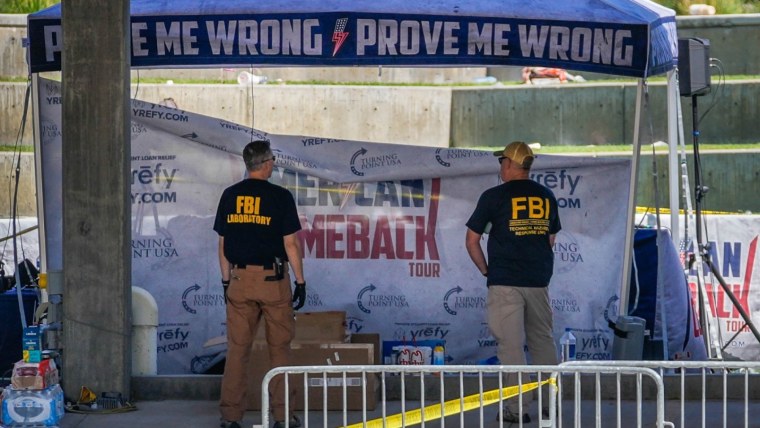
Because of this, the field tends to operate in cycles. After a high-profile attack, interest surges. Calls come in with urgent requests. At first, money is said to be no object. A team is assembled quickly with travel, logistics and personnel costs reflecting the short notice, and a quote is provided. At that point, priorities often shift. Suddenly, budgets matter, and within days, as the sense of danger fades, the plan is abandoned. We found this to be the case in the aftermath of the targeted killing of UnitedHealthcare CEO Brian Thompsonwhen many major companies clamored to hire security details for their leaders. That trend did not last. Too often, when confronted with the true cost of adequate protection, people settle for minimal coverage, such as a single driver with no advanced training, convincing themselves they have security now that the immediate threat appears to have faded.
Real security is neither simple nor convenient. It requires discipline like varying daily routes and schedules at random. It requires accepting protective measures that may not look appealing, such as ballistic panels or restricted access. And it requires trusting the expertise of trained professionals, even when their recommendations conflict with comfort or image. These are the trade-offs that genuinely protect lives.
We remain caught in the cycle of responding after tragedies rather than preventing them.
Kirk appeared on Wednesday in one of the most difficult environments to secure — outdoor college campuses. His team appeared to be better equipped for crowd management than dealing with a sniper threat. As is the case with nearly all deadly attacks, there was no way to perceive the particular nature of the threat he faced that day. The suspect, just 22 years old, most likely had little training, yet he is believed to have been able to not only plan and carry out the attack, but then escape afterward. That reality is sobering.
It is a horrifying reminder of how political violence in the United States is not receding; it is intensifying. Each successful incident not only causes immediate harm but also teaches future attackers what methods may succeed.
The hard truth is that no plan can guard against every possible threat. But security can be approached more seriously, with an understanding that its costs and inconveniences are investments (necessary ones, at that), not luxuries. When we fail to acknowledge that reality, we remain caught in the cycle of responding after tragedies rather than preventing them.
Robert D’Amico
Rob D’Amico is a global security and intelligence executive with over 35 years of experience leading protective operations, counterterrorism missions, and enterprise security strategy across government and private sectors. As the former FBI deputy chief of operations for the hostage rescue team and chief of counter-unmanned aircraft systems, he directed high-risk global missions, executive protection, and major event security, including the Super Bowl and World Series. As a former chief security officer and current consultant to Fortune 500 firms, he is recognized for building resilient security programs that protect people, assets, and critical infrastructure worldwide.
The Dictatorship
Americans who push back against Trump are winning
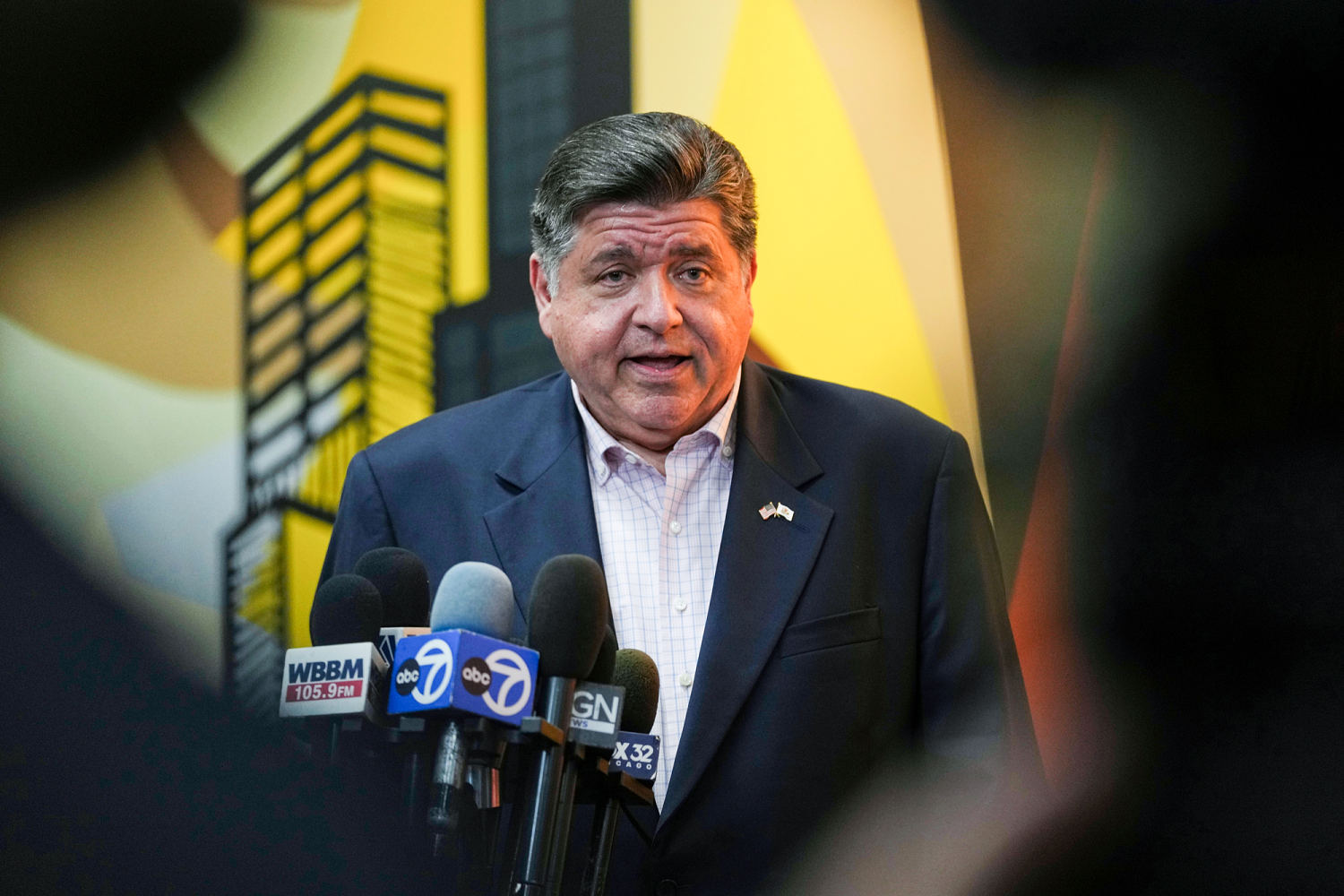
President Donald Trump’s second term has been built on a series of bluffs: Act like you have a power and some people may end up giving it to you. From gutting federal agencies to threatening law firms’ security clearances, he has expanded the imperial presidency by persuading his targets to give up.
But lately a number of prominent Americans have fought back against Trump — and won.
When Trump tried to fire Federal Reserve Board of Governors member Lisa Cook, she sued, and a federal judge allowed her to stay on the job until her case is heard at length. When he announced plans to send the National Guard into Chicago, Illinois Gov. JB Pritzker and Mayor Brandon Johnson stood shoulder to shoulder against it, and he started talking about going to Memphis instead. And when he tried to strip Harvard University of funding, it sued and won.
If you do not fight, you have already lost.
These leaders understand a truth that bears repeating: If you do not fight, you have already lost. If you do, you might preserve the law, the principle or the community under siege.
That is the choice now before Congress as another government shutdown deadline looms. Trump has announced he will not even meet with Democrats. Instead, Republican leaders have been dispatched to deliver his ultimatums: funding on his terms, with nothing offered in return. Democrats have not yet decided whether they will supply the necessary votes that keep the government open.
But this is not merely a negotiation over appropriations; it is a test of political courage. If Democrats surrender out of fear that they will be blamed for a shutdown, they will have handed Trump precisely the victory he seeks without forcing him to expend any political capital.
History makes plain what happens when leaders grow weary and turn away. After the Civil War, federal troops withdrew from the South in 1877ending Reconstruction and abandoning Black Americans to nearly a century of racial terror and disenfranchisement. That surrender to fatigue and compromise cost generations their rights. Trump is gambling that America will also grow weary of fighting and give up.
Yet history also records what is possible when leaders resist. Abolitionists refused to yield when presidents counseled patience and compromise; their persistence made emancipation a moral inevitability. Radical Republicans in Congress defied President Andrew Johnson’s attempts to restore white supremacy. They overrode his vetoes, passed the Reconstruction Acts and impeached him for abuse of power. More than a century later, lawmakers pressed the Watergate investigation forward even as Richard Nixon threatened a constitutional crisis. Their determination forced the release of the White House tapes and ended his presidency.
From abolition to Reconstruction to Watergate, progress came not from passivity but from sustained struggle against leaders who abused their office.
That is the tradition Lisa Cook joined when she refused to be silenced. It is the tradition Harvard and George Washington University reaffirmed when they refused to bend. It is the tradition of Pritzker, Johnson, California Gov. Gavin NewsomMaryland Gov. Wes Moore and Baltimore Mayor Brandon Scottwho proved that governors and mayors can still defend their cities from overreach. And it is the tradition that Congress must reclaim if it hopes to preserve its role as a co-equal branch of government.

The struggle is tiring. That is its purpose. Trump thrives on fatigue, assuming that if he presses long enough, the opposition will collapse. But his power is not inevitable. It is fragile, and every time it is confronted, it is diminished.
The only way to defeat Trump’s assault on democracy is to fight. The fight itself is the safeguard of our republic. And if we are willing to engage it — in the courts, in the halls of Congress, in statehouses and city halls across the country — history suggests that we can not only endure, but also prevail.
For more thought-provoking insights from Michael Steele, Alicia Menendez and Symone Sanders-Townsend, watch “The Weeknight” every Monday-Friday at 7 p.m. ET on BLN.
Symone D. Sanders Townsend is an author and a co-host of “The Weeknight,” which airs Monday through Friday at 7 p.m. ET on BLN. She is a former deputy assistant to President Joe Biden and a former senior adviser to and chief spokesperson for Vice President Kamala Harris.
The Dictatorship
‘Disturbing’: BLN hosts rip Fox anchor for shocking call to ‘just kill’ homeless people


-
Now Playing

-
UP NEXT

The “Gazafication” of the West Bank and the façade of a two-state solution
06:51
-
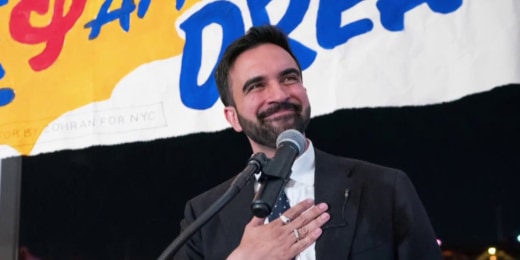
NY Gov. Katchy
07:57
-
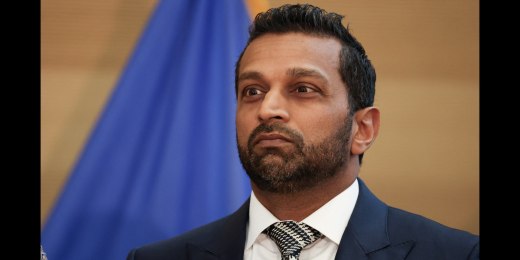
‘Not a serious person’: Fmr. FBI official SLAMS Kash Patel’s leadership
09:23
-

“This is a time for courage”: TX State Rep. James Talarico on bridging divides in politics
07:43
-

‘Culture of enabling’: Survivor speaks out on Epstein’s birthday book, demands transparency
10:30
-

Former Secret Service Agent warns Kirk assassination signals new targets of political violence
08:17
-

Dem fights for expanding IVF amid Trump assault on reproductive rights
06:55
-

‘Bless Cuomo’s heart.’ Fmr. Rep. Jamaal Bowman, Leigh McGowan mock Andrew Cuomo’s attacks on Zohran Mamdani
09:33
-

‘Harbinger of what’s to come’: Tensions boil after ICE agent kills father near Chicago
09:37
-
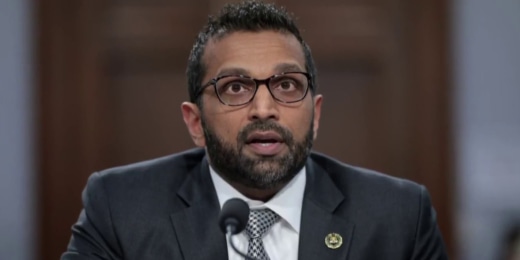
‘Double standard of justice’: Top Dem demands transparency ahead of Kash Patel hearing
08:10
-

Trump Memphis takeover would undermine ‘freedom’ & ‘American norms’: Tennessee mayor
07:48
-

ICE agent fatally shot man who dragged him with his vehicle, DHS says
10:47
-

Comedian: ‘Laura Loomer as the de facto Defense Secretary makes me feel as safe as Ghislaine Maxwell as a baby sitter”
10:33
-

‘Vaccination is a form of kindness’: Mom of immunocompromised child slams RFK Jr’s anti-vaccine agenda
05:34
-

‘Highly likely’ Congress obtains Epstein birthday book
09:30
-

Rep. Moulton: Trump Gave No Warning Before Venezuela Boat Strike
07:10
-

CNBC Reporter: Trump’s economy problem is threatening his entire agenda
10:18
-

A Dem Senate candidate was asked if she’d meet with Benjamin Netanyahu. She had a one-word answer.
07:36
-

Gaza bombings & West Bank annexation: Netanyahu to face U.N, as U.S. backs Him
09:28
The Weekend: Primetime
-
Now Playing

‘Disturbing’: BLN hosts rip Fox anchor for shocking call to ‘just kill’ homeless people
04:20
-
UP NEXT

The “Gazafication” of the West Bank and the façade of a two-state solution
06:51
-

NY Gov. Katchy
07:57
-

‘Not a serious person’: Fmr. FBI official SLAMS Kash Patel’s leadership
09:23
-

“This is a time for courage”: TX State Rep. James Talarico on bridging divides in politics
07:43
-

‘Culture of enabling’: Survivor speaks out on Epstein’s birthday book, demands transparency
10:30
-
Uncategorized10 months ago
Bob Good to step down as Freedom Caucus chair this week
-

 The Josh Fourrier Show10 months ago
The Josh Fourrier Show10 months agoDOOMSDAY: Trump won, now what?
-

 Politics7 months ago
Politics7 months agoFormer ‘Squad’ members launching ‘Bowman and Bush’ YouTube show
-

 Politics10 months ago
Politics10 months agoWhat 7 political experts will be watching at Tuesday’s debate
-

 Politics10 months ago
Politics10 months agoHow Republicans could foil Harris’ Supreme Court plans if she’s elected
-

 The Dictatorship7 months ago
The Dictatorship7 months agoPete Hegseth’s tenure at the Pentagon goes from bad to worse
-

 The Dictatorship7 months ago
The Dictatorship7 months agoLuigi Mangione acknowledges public support in first official statement since arrest
-
Economy10 months ago
Fed moves to protect weakening job market with bold rate cut







